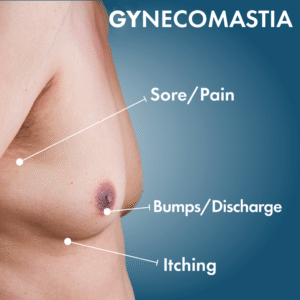Introduction
Glycogenomics, which combines genomics and glycomics, is transforming how researchers understand glycosylation and its impact on protein function and disease mechanisms. By studying the genes involved in glycan synthesis, glycogenomics helps identify novel drug targets and disease biomarkers.
With advancements in glycomics and genomics, glycogenomics platforms provide researchers with critical tools to explore the genetic basis of glycosylation. This article focuses on how glycogenomics supports scientific research and drug development, particularly through Cancer Glycogene Discovery Services, and how CD BioGlyco’s platform enables breakthroughs in glycosylation research.
What Is Glycogenomics?
Glycogenomics is the study of genes involved in glycosylation, including glycosyltransferases, sulfotransferases, and sugar nucleotide transporters. These genes, known as glycogenes, are crucial in regulating the synthesis and modification of glycans. Over 180 human glycogenes have been identified and characterized, providing insights into the genetic basis of glycan biosynthesis.
At its core, glycogenomics connects the field of genomics—focused on the study of genetic sequences—with glycosylation, a post-translational modification of proteins. This integration allows researchers to understand how genetic variations influence glycosylation patterns and their subsequent effects on cellular functions, disease progression, and therapeutic responses. By leveraging glycogenomics, scientists can uncover the evolutionary lineage of glycan-protein interactions and gain valuable insights for drug discovery and disease diagnosis.
Glycogenomics in Cancer Research
Cancer is often characterized by abnormal glycosylation patterns, which can influence tumor growth, metastasis, and drug resistance. Glycogenomics plays a crucial role in understanding these changes by identifying glycan-related genes that contribute to cancer development. By mapping the genetic factors involved in glycosylation, glycogenomics enables the discovery of new cancer biomarkers and potential drug targets.
CD BioGlyco’s Cancer Glycogene Discovery Service focuses on identifying glycogenes associated with cancer. This service helps researchers pinpoint glycan modifications linked to tumorigenesis and provides valuable information for developing targeted therapies. With advanced glycoproteomics and glycomics technologies, CD BioGlyco’s platform supports cancer research by providing detailed insights into glycosylation patterns and their role in malignancy.
Applications of Glycogenomics in Drug Development
Glycogenomics offers significant advantages in drug development by identifying new drug targets and improving the efficiency of drug discovery processes. By understanding how glycosylation affects protein function, researchers can develop drugs that target specific glycan modifications, which may be crucial for the efficacy and specificity of therapeutic agents.
Additionally, glycogenomics can aid in the development of better biologics by improving glycosylation profiles in therapeutic proteins. This can enhance the stability, efficacy, and safety of biologics, which are increasingly used in treating various diseases. Glycogenomics also plays a role in identifying biomarkers that can predict drug response, helping to optimize drug development pipelines and accelerate clinical trials.
Through its Glycogenomics Platform, CD BioGlyco provides researchers with the tools necessary to explore and manipulate glycosylation pathways, offering a comprehensive approach to the discovery of new treatments.
Glycogenomics Technologies at CD BioGlyco
CD BioGlyco’s glycogenomics platform offers a range of advanced technologies to support detailed analysis and manipulation of glycosylation. Key services include:
Glycogene Editing Service
Precise tools for editing glycogenes involved in glycan synthesis.
Modification of glycosyltransferases and other key enzymes.
Enables researchers to investigate the effects of specific genetic changes on glycosylation patterns.
Glycogene Delivery Services
Variety of delivery methods: biological, chemical, or physical.
Tailored strategies for efficient glycogene transfer into target cells.
Enhances the manipulation of glycosylation at the genetic level for functional studies.
Glycogene Expression Profiling
Analysis of glycogene expression levels to understand their roles in biological processes.
Helps researchers link gene expression with glycosylation changes in disease mechanisms.
With these services, CD BioGlyco provides researchers with the tools to explore and manipulate glycosylation, advancing both basic research and therapeutic development.
Conclusion
Glycogenomics is rapidly becoming an essential tool in biotechnology, offering critical insights into the genetic basis of glycosylation and its role in diseases like cancer. Through advanced technologies like glycogene editing, delivery, and expression profiling, CD BioGlyco provides comprehensive services that support researchers in their quest to uncover new drug targets and biomarkers.
By integrating genomics with glycomics, glycogenomics is opening new pathways for drug development, particularly in the identification of glycosylation-related biomarkers and improving therapeutic biologics. With a strong focus on research support and technology development, CD BioGlyco’s platform is well-positioned to accelerate innovation in glycosylation studies, helping scientists push the boundaries of disease understanding and therapeutic discovery.


